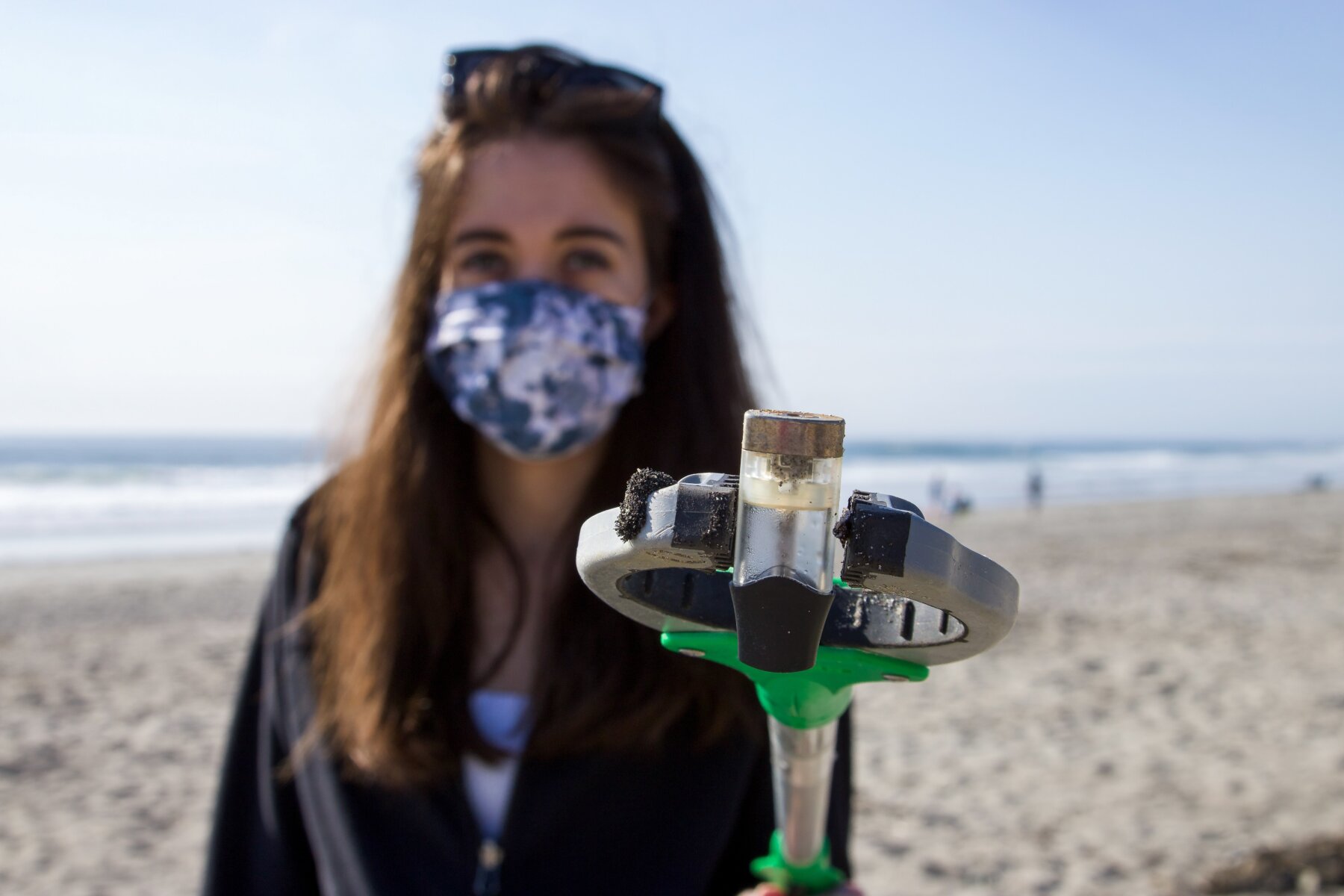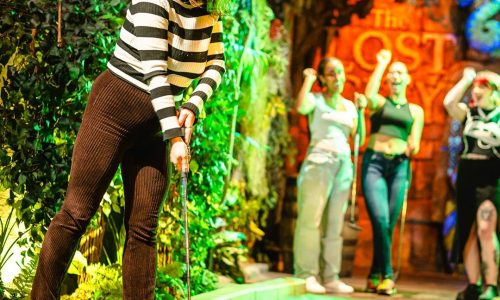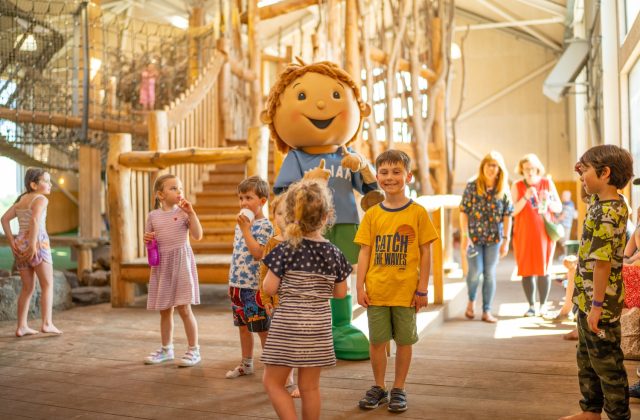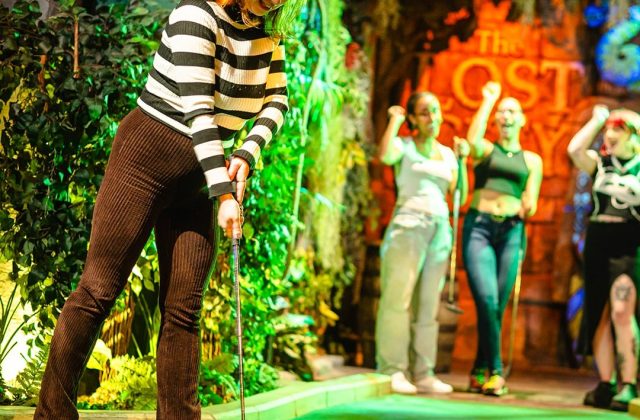More than 200 young people have been inspired to focus on the dangers of single-use plastics – thanks to the innovative research of a University of Hull lecturer.
Charlotte Dean, a lecturer in Education, founded and designed the ‘Plastic Citizen’ project, aimed at uncovering young people’s attitudes towards environmental issues and teach them how to become more involved with fixing them.
Plastic Citizen introduces young people in the region to a ‘Citizen Inquiry’ form of research – by designing their own research questions and devising strategies to produce responses, Citizen Inquiry thrusts young people into the heart of their own research.
Having engaged with over 200 young people from schools and youth projects in the Humber region, Charlotte has used Plastic Citizen to not only teach them the importance of raising awareness, but how – by thinking creatively – they can help raise awareness themselves.
Charlotte said: “The most common theme that came up when speaking to the young people was that they felt responsible for tackling environmental issues, but didn’t know how to go about doing so.
“The aim of Plastic Citizen is to allow their creative ideas to flourish in tackling these issues, in order for them to feel as though they have had the biggest impact possible.
“I wanted to be a facilitator of the research, rather than a director of it.”
The creative ideas from the young people culminated in the creation of a short music video, with cartoon pieces of rubbish rapping about how they would prefer to be recycled than thrown away.
The young participants identified that there was generally a lack of information about the classification and recycling of single-use plastics. They thought the creation of the film would be a fun, engaging way to educate other young people on the issue.
In addition, they designed a one-hour lesson on raising awareness of single-use plastics, using the video as supportive material, that they could take into local schools to educate others on the issue.
Finally, with the help of local digital solution company Sauce and in collaboration with the University of Hull, they designed an educational app – Recycling Rangers – aimed at children aged 8-11 years old. With advice and tips on how to make the most out of your recycling, the app would also be shared across local schools to spread awareness on the issue.
Charlotte said: “It was inspiring to see them really delve into the issues surrounding plastics, and want to teach other young people their findings.”
Many of the workshops for the project took place on the University of Hull’s campus, giving many of the participants their first glimpse of university life.
Charlotte said: “Some of the participants in the project were from disadvantaged backgrounds and had never thought that learning at university would be possible for them. We wanted to give them that opportunity to see for themselves.”
Local animation company My Pockets helped the young people with creating the video itself, teaching them a variety of digital skills along the way.
The video was a great success, having been retweeted by BBC Radio Humberside’s official Twitter page to highlight their work.
For more information on the Plastic Citizen project, which was funded by the Engineering and Physical Sciences Research Council, please click here. The Principal Investigator for the project was Professor Kevin Burden from the School of Education.
Plastic Citizen continues to build on the University of Hull’s reputation for addressing plastics pollution and other environmental research:
* The University is recognised as a leading centre for research into environmental issues of global importance and interest. Researchers specialise in areas such as climate change, globalisation, renewable energy and low-carbon futures. Reducing the demand for single-use plastics and protecting our waters by reducing the impact of chemicals, plastics and synthetics are also key.
* A recent study – led by researchers at the University of Hull and Hull York Medical School – explored microplastic contamination among seafood.
After looking at more than 50 studies between 2014 and 2020 to investigate the levels of microplastic contamination globally in fish and shellfish, researchers reported that the highest levels were found in mussels, oysters and scallops.
The paper, ‘Microplastic contamination of seafood intended for human consumption: a systematic review and meta-analysis’ is published in Environmental Health Perspectives.
This research team, which is part of the Human Health and Emerging Environmental Contaminants research group, has also published studies of microplastics in drinking water and table salt as well as a study into the variable levels of microplastics in different seafood tissue parts.
* One of the University’s distinctive features is its strong research culture of collaboration and interdisciplinary working. Researchers across the University also collaborate with University institutes such as the Energy and Environment Institute which has established a Plastics Collaboratory to bring together researchers across campus working on the critical issue of plastics in the environment and how to address this through evolving a new circular plastics economy.
* The Energy and Environment Institute brings together the skills and capabilities of leading researchers to tackle global challenges related to climate change and a low carbon transition, and their consequences for society and livelihoods. Home to over 100 staff and PhD researchers, the Institute is leading research in some of the areas of the world most at-risk from climate change, including flood prone areas such as Vietnam’s Mekong and Red River deltas, the Congo River in Africa, as well as locations much closer to home.
* In November 2020, the University of Hull announced an ambitious eight-year plan to become carbon neutral by 2027, pledging a commitment towards a strong, sustainable future.
The University is introducing a range of measures, including a transition to renewable sources of energy to power the campus and reducing energy usage through optimising our estate and campus infrastructure.
























